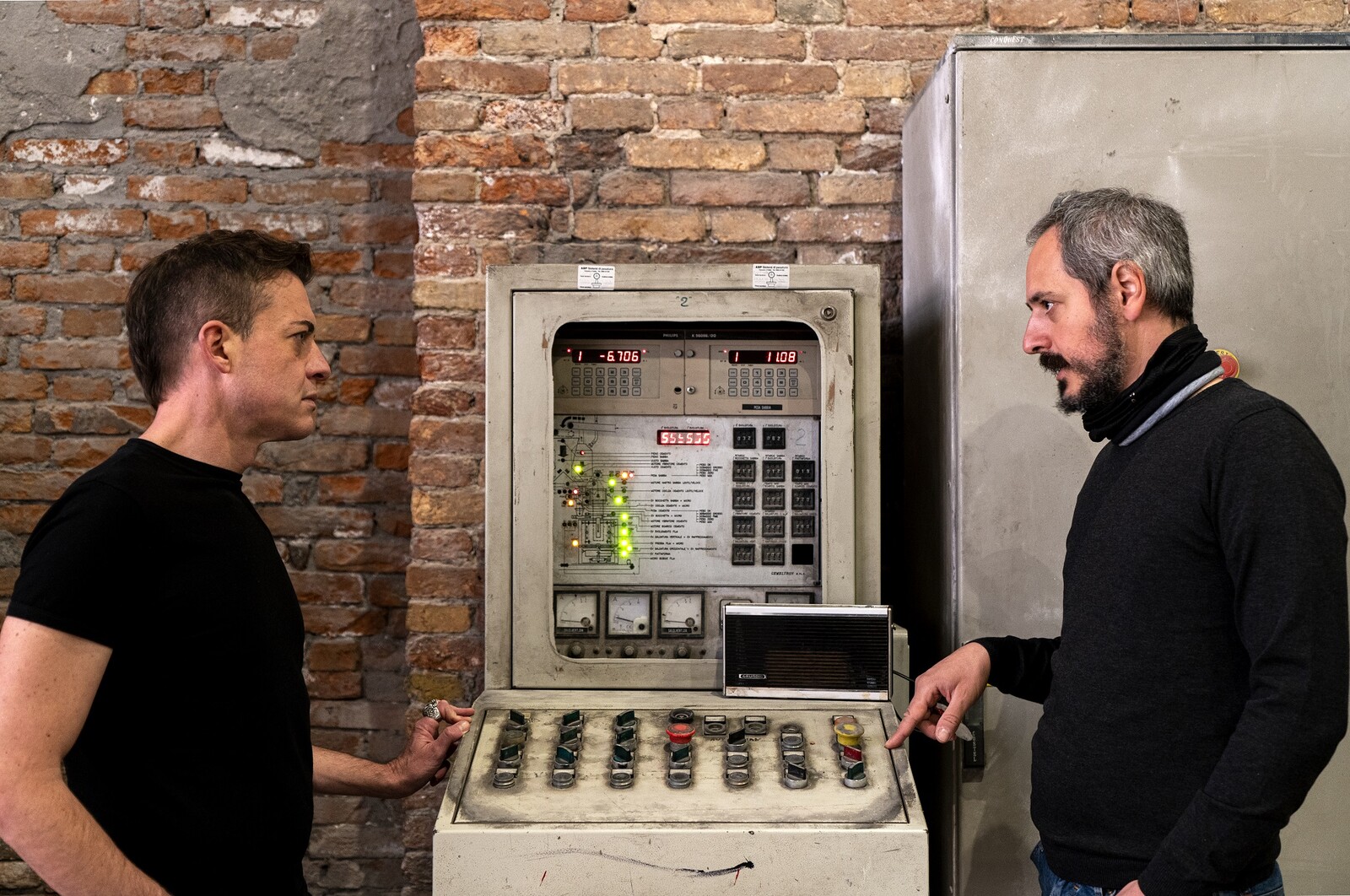Promoted by Directorate-General Contemporary Creativity—Ministry of Culture
November 25, 2022, 12pm
Fondamenta Zattere Al Ponte Lungo 1392
30123 Venice
Italy
Friday, November 25, at 12pm, at the Ca’ Foscari Zattere (CFZ), the program of initiatives designed for the public linked to the Italian Pavilion at the 59th Venice Biennale, promoted by the Directorate-General for Contemporary Creativity—Ministry of Culture, presents the final appointment that greets History of Night and Destiny of Comets through the voices of its protagonists. Eugenio Viola and Gian Maria Tosatti, curator and artist of the Italian Pavilion at the Venice Biennale Arte 2022, discuss the themes, urgencies and reflections developed around History of Night and Destiny of Comets which will close its doors to the public on Sunday, November 27, 2022. Silvia Burini, Department of Philosophy and Cultural Heritage at Ca’ Foscari University, Luciano Antonino Scuderi, achitect Directorate-General for Contemporary Creativity—Ministry of Culture, and Adriana Rispoli, coordinator of the Public Program, will take part to the conversation.
A final appointment that takes stock of this exhibition experience which welcomed thousands of visitors at the space of the Tese delle Vergini at the Arsenale, entirely dedicated—for the first time—to a single artist: Gian Maria Tosatti.
The Italian Pavilion, curated by Eugenio Viola, is entitled History of Night and Destiny of Comets and consists of an environmental installation with an irreducible theatrical syntax, which is divided into a prologue and two acts. The first part, the History of Night, offers the visitor a symbolic journey through the rise and fall of the Italian industrial dream, the second leads him to a striking final vision which constitutes the Destiny of Comets. An immersive work that takes the form of an intermediary device that contains within itself and blends a plurality of languages as usual in Tosatti’s research, from literary references to the visual arts, from theater to music and performance. A complex experiential machine that leads the visitor through a sensitive path with the aim of offering a new awareness and generating concrete reflections on the possible destiny of human civilization.
The appointments of the Public Program amplified these messages thanks to a network of institutions that from North to Southern Italy has expanded to the rest of the world with the participation of 25 artists and curators, as well as professors, entrepreneurs, architects, engineers, and 10 national and international cultural institutions. The Museum of Natural History of Venice and Marevivo, the Central Zac of Palermo, the Madre Museum in Naples, the MAC in Lima (Peru), the Belgrade Cultural Center in Belgrade (Serbia), the MSU in Zagreb (Croatia), the ZOMA Museum in Addis Ababa (Ethiopia), the MALBA in Buenos Aires (Argentina), the EMST National Museum of Contemporary Art in Athens (Greece) were the national and international Embassies which hosted conversations with various intellectuals of the cultural scene contemporary art. The public was directly involved in the discovery and verification of the messages conveyed by the Pavilion through performative projects, such as Marry the Night with the ecowalks by g. olmo stuppia and Urlante Ruggente Stridente by Dewey Dell and through encounters with the poetics of other artists such as Giulia Piscitelli, Eugenio Tibaldi, Andrea Mastrovito and Stefania Galegati. The program, created in collaboration with the Ca’ Foscari University of Venice, offered a cross-section of Italian creativity engaged in the rereading of history, with a view to a necessary search for a new balance.
Also, thanks to: Agata Polizzi, Andreco, Angela Tecce, Angelos Varvarousis, Antonella Moretti, Aterraterra, Beatrice Merz, Bojan Mrđenović, Božidar Mandić, Clara Tosi Pamphili , Daphne Vitali, Dawit Benti, Dimitra Kondylatou, Duen Sacchi, Elena Damiani, Elias Sime, Giovanni Bonotto, Juan Carlos Gómez, Katryne Weir, Katerina Gregos, Letizia Magaldi, Mario Giro, Maríta García, Colectivo Materia (Paula Fleisner—Noeli Billi), Matheew Carrillo Marentes, Matteo Bertelè, Meskerem Assegued, Michele Guido, Neli Ruzic, Nicolás Gómez, Radmila Iva Jankovic, Rosalba Giugni, Silvano Bertalot, Silvia Bolla, Stefania Portinari, Stefania Zuliani, Teofilo Tramboulis, Vesna Vukovic, Vincenzo De Luca, Zorana Djakovic

